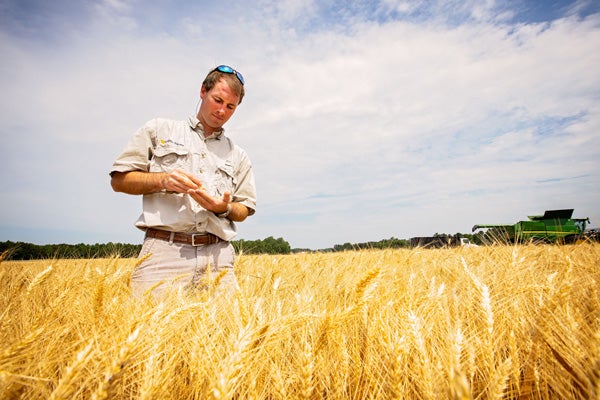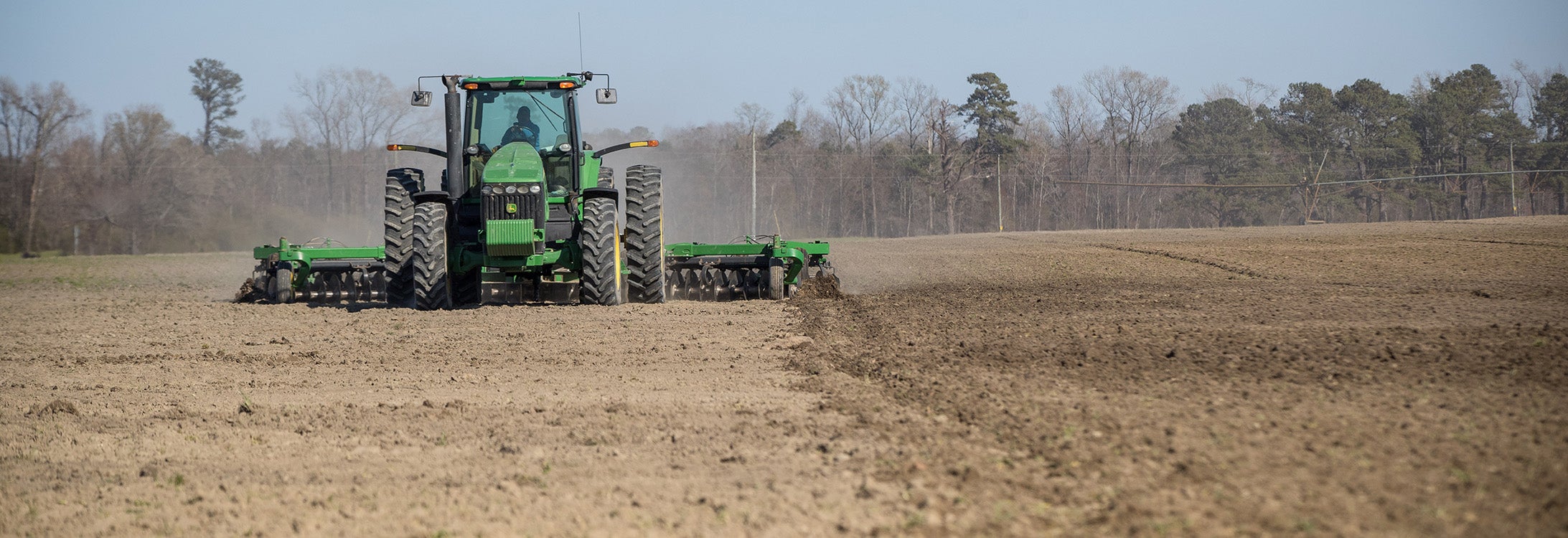THE CRISIS

Third-generation farmer Archie Griffin stands on his family’s farm in Washington,
North Carolina. (Photos by Cliff Hollis)
Farmers also faced a crisis in the 1980s when the interest rates for operating or purchasing farmland skyrocketed but land values failed to increase as part of the lending calculations.
“Many farmers were not able to hold onto their land, so large numbers of farms across the United States were lost,” said Dr. Robin Tutor Marcom, ECU faculty member and director of the North Carolina Agromedicine Institute.
“The crisis now is different. This is a different sort of stress; we call it a compounded stress,” she added. “It’s not just the weather. It’s not just broken machinery. It’s a number of factors happening at once.”
Farmers are very private people, and if they are people of faith, Tutor Marcom said, they feel that it’s their God-given responsibility to take care of the farm and to be good stewards of the land.
“Because they don’t want to worry anyone, they try to figure things out on their own. And they believe that if they can reassure themselves that everything is OK, then they can reassure others,” she said. “When they are ultimately not able to solve the problem on their own, they turn inward on themselves.”
Agriculture contributes more than $92 billion to North Carolina’s economy, Tutor Marcom said, more than the military, tourism, technology or medicine.
“North Carolina agriculture is what drives our state,” she said. “If we don’t have farmers to contribute to our economy, our economy is going to suffer a substantial hit. … We have the safest, most affordable food supply in the world. And every time we lose a farmer, our ability to sustain that safe and affordable food supply decreases.”
